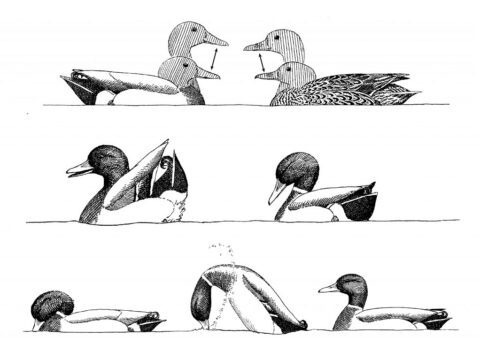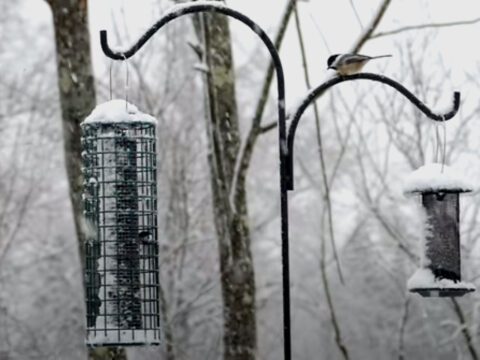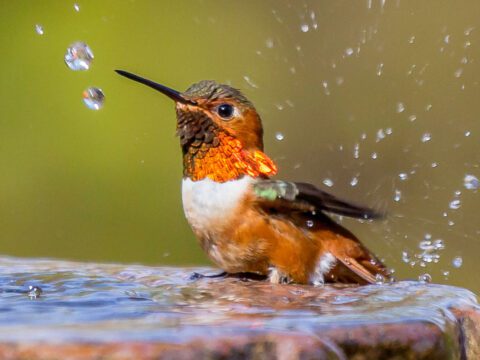Battling Squirrels to Collect Feeder Data
By Sarah MacLean
January 15, 2011

It’s sunrise and, perhaps unlike your typical undergraduate, I’m already at work. I’m out in the woods toting a backpack full of batteries, a laptop, and a 10-gallon jug of sunflower seed. Twice a week I take this morning hike to tend a set of “smart” feeders that are part of a new study led by the Cornell Lab of Ornithology’s David Bonter.
This morning, all is not well. There’s no memory on the feeder’s circuit board. The feeder’s antenna, which tells us the identity and timing of each and every tagged bird’s visit, is normally a tidy ring of copper wires. It takes two hours to make one. Today it’s in disarray, a nest of snipped wires, and the dowel perch is nearly chewed through.
Squirrels.
I grew up in a squirrel-free neighborhood in Southern California. When I moved to New York, I entered the war zone.
I hope to use the data from our feeders for an honors thesis detailing the feeding behavior of Black-capped Chickadees. Those stakes are a bit higher than lost sunflower seed—a few crafty, or worse, frustrated, squirrels can be disastrous. When they can’t chew into the feeders themselves they focus on the antennas.
And so, in the name of science, and with Bonter’s guidance, I have found it necessary to become a sort of “professional” squirrel thwarter. Our main strategy last year was to scout for clearings. We’d then hang the feeder from a metal wire strung between two trees and beyond a squirrel’s jumping range.
Well, squirrels are either talented at parachuting or accomplished tightrope walkers (probably both) because the maiming of our precious antennas continued. This year, we improvised baffles: cut a slit into a paint-bucket lid, slide the metal wire into the center, then duct-tape everything in place to make a simple squirrel deterrent.
If I had written this article last week, I might have claimed that our paint-can baffles had finally allowed us to gain the upper hand. Sadly, today’s shredded antenna suggests otherwise. In fact, it suggests that, in Bonter’s words, “You will never outsmart every squirrel. ‘Squirrel-proof’ does not exist.”
And so the arms race continues. Even if squirrels do wreak havoc on our equipment, I can’t help but commend them for being such worthy opponents.
Sarah MacLean, Cornell ‘13, is a sophomore majoring in Natural Resources.
Originally published in the Winter 2011 issue of BirdScope.


All About Birds is a free resource
Available for everyone,
funded by donors like you





